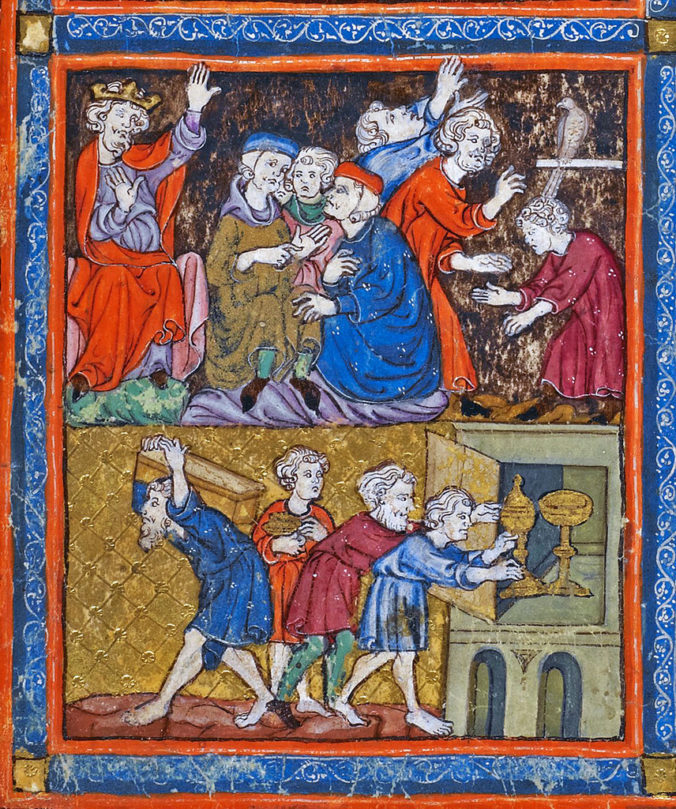It’s a mild day. Those are the only kinds of May days that I enjoy. Otherwise, May just reminds me that the humidity and hornets of summer are almost here. There’s a good bit of breeze out there. Storms are on the way. “Rough winds do shake the darling buds of May” and all that. You know, it’s a really good day for reading a bit of Augustine on an easy chair. Just a lamp, a chair, a blanket, and a book. As an Enneagram 4, I love to create a mood or ambiance in which to enjoy certain things. It’s like the cooking before the meal.
Anyway, I picked up Augustine’s little book, On Christian Teaching, today and nestled. You may recall that I’ve struggled often with guilt over reading other things besides Scripture and theology. It wasn’t always the case and I’m trying to get past it, but it’s still there. Maybe that’s why I picked up Augustine instead of Melville. But ironically, I did find some help on a very theological page that I had dog-eared years ago.
After arguing that “a person who is a good and a true Christian should realize that truth belongs to his Lord, wherever it is found, gathering and acknowledging it even in pagan literature,” Augustine talks about that which someone who is interested in teaching doctrine should study. “If someone suitably qualified were interested in devoting a generous amount of time to the good of his brethren,” one could easily become buried under the sheer quantities of resources (how much more in our day than in his?). Where to begin? What to ignore? To help streamline the discernment process, Augustine introduced a concept that’s popularly known as “plundering the Egyptians.”
“Any statements by those who are called philosophers, especially the Platonists, which happen to be true and consistent with our faith should not cause alarm, but be claimed for our own use, as it were from owners who have no right to them. Like the treasures of the ancient Egyptians, who possessed not only idols and heavy burdens, which the people of Israel hated and shunned, but also vessels and ornaments of silver and gold, and clothes, which on leaving Egypt the people of Israel, in order to make better use of them, surreptitiously claimed for themselves…similarly all the branches of pagan learning contain not only false and superstitious fantasies and burdensome studies that involve unnecessary effort, which each one of us must loathe and avoid as under Christ’s guidance we abandon the company of pagans, but also studies for liberated minds which are more appropriate to the service of the truth, and some very useful moral instruction, as well as the various truths about monotheism to be found in their writers.” – Book Two, XXXIX
All branches of pagan learning have studies for liberated minds (those “under Christ’s guidance”) that can only serve the truth and help us cultivate virtue. This is what Karen Swallow Prior’s talks about in her excellent book, On Reading Well. If Plato says something that sounds alarmingly like Isaiah, don’t worry. All truth is God’s. Just take it and praise God and move on. Augustine, even in this book, quotes the Roman orator Cicero (he was a huge fan of Cicero, actually). The sciences and the humanities, the servile arts and the liberal arts, all function as “mines of providence.” Augustine argues that they are everywhere. We need only look.
I can read Shakespeare’s Sonnets and take genuine, unembarrassed pleasure in their meter and rhyme. From Harry Potter and H.P. Lovecraft to Aristotle and Euclid’s Elements of Geometry, golden truth and silver goodness can be easily or strenuously dug. They can help me become a more loving and more disciplined person. My heart can become widened. I need only resolve to come out of Egypt with both of my hands full.
